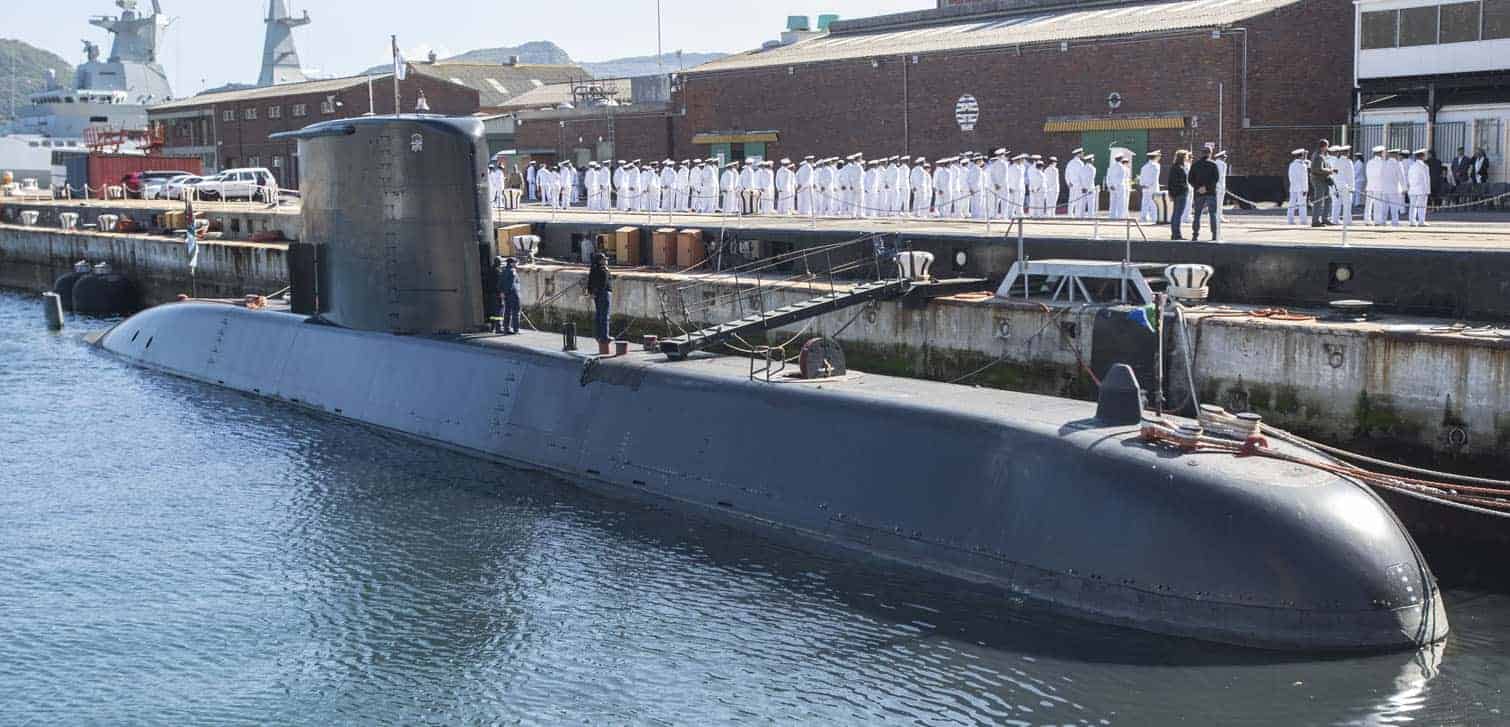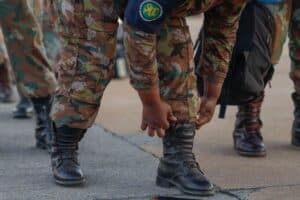Starved of resources, riddled with criminal infiltration, crippled by weak command and warped by political interference – that’s the picture...

Starved of resources, riddled with criminal infiltration, crippled by weak command and warped by political interference – that’s the picture of the police service emerging from sworn testimony in recent months. There is reason to fear the defence force may be succumbing to the same rot.
The chief of the Navy, Vice-Admiral Monde Lobese, ignited a furore. In speeches at two events, he said government officials and political decision-makers are colluding to starve the SA National Defence Force (SANDF) of funds so it can no longer defend against “Western threats”.
He questioned whether criminals and “unpatriotic sellouts” were influencing funding decisions and warned of an attempt to “privatise” the navy. Lobese drew a direct parallel with the crisis in the SA Police Service (Saps) that prompted the Madlanga Commission of Inquiry.
By contrast, with the response to allegations made by Saps’ Lieutenant-General Nhlanhla Mkhwanazi, signs are that the ANC-led government of national unity will try to keep this Pandora’s box shut.
ALSO READ: Business needs to get tough for South Africa to truly turn the tide
Defence Minister Angie Motshekga condemned Lobese’s remarks as “inappropriate, disingenuous and unfortunate” and pledged “appropriate” disciplinary steps. But silencing Lobese would squander a rare opportunity.
His remarks, after years of foreign-policy adventurism involving Russia, China and Iran, and SANDF resistance to constitutional oversight, make the case for a Madlanga-style inquiry into the defence force. Referencing the navy’s declining capacity to maintain maritime patrols because of a few serviceable ships and submarines.
Lobese said: “I often find myself questioning whether those responsible for significant decisions may be influenced by drug cartels, maritime criminals and human traffickers to undermine our Monday 10 24 November 2025 nation and compromise its sovereignty.”
Lobese’s frustration over the SANDF’s chronic budget starvation is nothing new. Earlier this year, before parliament’s standing committee on defence, he accused the National Treasury of being “unpatriotic” and of defying the president’s wishes.
His broadside reflects a wider shift among a frustrated top brass: a willingness to bypass formal channels and complain publicly about chronic underfunding, which has gutted the navy and air force. In February, the surgeon-general warned the nation was vulnerable because of its unprotected borders and accused the government of running a “Mickey Mouse” defence force.
Chris Hattingh, the DA’s spokesperson on defence, said Lobese’s public outburst “comes close to outright insubordination”.
Although Hattingh welcomed Motshekga’s decision to institute disciplinary proceedings, he doubts it will amount to more than a slap on the wrist. More disturbing to Hattingh is the quickening drift away from SA’s ties with Western democracies, especially towards China.
He cites a previously undisclosed agreement signed by Motshekga in September 2024, under which China pledged to gift SA military material worth 100 million yuan (about R276 million). “All international agreements – including defence deals – must be tabled in both Houses of Parliament. This has not been done.”
Unlike Saps, the SANDF is actively shaping elements of SA’s foreign policy – whether through its own ideological adventurism or with the tacit consent of the Presidency.
A recent Afrobarometer survey found that 49% of South Africans would accept military rule. When the state’s core security institutions rot from within and public faith in civilian governance collapses, the risks are substantial in a fragile, young democracy.
ALSO READ: Sinking navy sails on stormy seas
Support Local Journalism
Add The Citizen as a Preferred Source on Google and follow us on Google News to see more of our trusted reporting in Google News and Top Stories.






